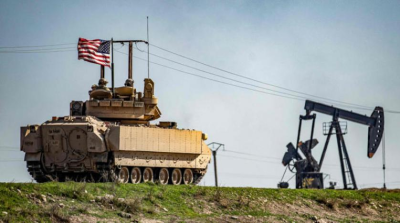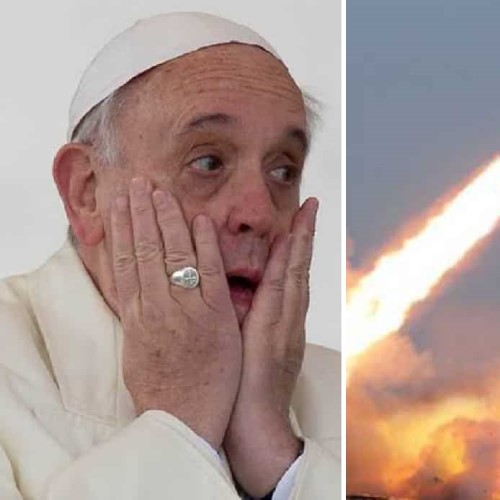NOVANEWS
As Republican war hawks call for yet more blood and treasure to be spilled on the sands of Mesopotamia, oil prices spike and military-industrial overlords prepare to milk the US Treasury for yet more contracts.
by Dean Henderson
Iraqi Prime Minister Nouri al-Maliki has refused to accept a salvation government as his army continues to conduct mop-up operations against ISIL Takfiri militants. Press TV reports that ISIL forces were trained at secret CIA camps inside Jordan. ISIL uses US and Saudi-supplied weapons.
As Republican war hawks call for yet more blood and treasure to be spilled on the sands of Mesopotamia, oil prices spike and military-industrial overlords prepare to milk the US Treasury for yet more contracts.
War is business and business is good. For the banksters, permanent war has been the antidote to a deflationary death spire and the jail time that would surely follow.
(Excerpted from Chapter 12: The Gulf Oil War: Big Oil & Their Bankers…)
As Ralph Lewis – senior consultant for Chevron Texaco – once stated, “The trick in the Middle East is to keep it stirred up.”
Lewis’ comments mirror statements made in a Council on Foreign Relations (CFR) publication titled,The Middle East in the New World Economic Order. The article appeared in the CFR’s Foreign Affairs, which is read religiously at the State Department. The most telling sentence reads, “The US wants maximum tension between Middle East OPEC countries.”
The Iran/Iraq War decimated both OPEC price hawk countries, but the “maximum tension” wasn’t over yet. US war ships crowded into the Persian Gulf. A massive US militarization of Saudi Arabia and the GCC countries was under way. The stench of war was in the air again. Saudi Arabia and Kuwait had loaned Saddam Hussein $120 billion to prosecute his war in Iran. Now the creditors came calling.
With oil prices in the gutter due to GCC overproduction, Iraq was forced to embark on a massive privatization campaign, selling off state assets to obtain the hard currency needed to pay off its debts. This hit at the heart of the Iraqi people who took pride in the nationalization of the Iraqi Petroleum Company, previously owned by the Four Horsemen. For decades Iraq had guarded its resources from multinational corporations, becoming the most modern and prosperous nation in the Middle East. Now the international bankers were swarming like vultures. Iraq’s agricultural sector was sold to the highest bidder, leaving many farmers impoverished. Labor unions were banned. Foreign investment, disallowed since 1964, flowed into the country. Local elites bought up state-owned factories.
In 1989 the US/Iraq Business Forum was established. Facilitating its formation was Kissinger Associates – a private consulting firm founded by Henry Kissinger. President Bush Sr. had just taken office. He included two former directors of Kissinger Associates in his cabinet – Undersecretary of State Lawrence Eagleburger and National Security Adviser Brent Scowcroft.
The US/Iraq Business Forum was the vehicle through which US corporations gained access to the newly liberalized Iraq economy. Its members included Bechtel, Fluor, GM, Texaco, Occidental Petroleum, Westinghouse and AT&T. That same year Atlanta-based Banca Nacionale de Lavaro (BNL) approved $3 billion in loans to arm Saddam. More than $360 million in US taxpayer money ended up in Gulf International Bank, a Saudi/Iraqi venture in Bahrain.
BNL’s International Advisory Board included David Rockefeller who, according to economist Paul Adler, met on at least three occasions with Saddam Hussein. Chase Manhattan led a consortium that financed the US/Iraq Business Forum.
Iraq’s attempts at privatization proved a dismal failure. State assets were auctioned off for pennies on the dollar, oil prices remained low and Iraq spent the little money it made through the sales rebuilding an Iraqi economy devastated by the war with Iran, which left 750,000 Iraqis dead.
Saddam Hussein took a left turn, a la Noriega, and railed against US imperialism.




